Earth

Educators and Parents, Sign Up for The Cheat Sheet
Weekly updates to help you use Science News Explores in the learning environment
Thank you for signing up!
There was a problem signing you up.
-
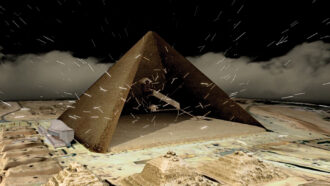 Physics
PhysicsMuons reveal the inner worlds of pyramids, volcanoes and more
Tracking these subatomic particles can uncover surprising hidden structures.
-
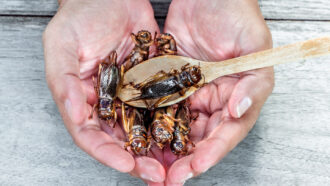 Animals
AnimalsHere’s why cricket farmers may want to go green — literally
Crickets are great sources of protein, but they often kill each other in captivity. Green light could help solve the problem, two teens find.
By Anna Gibbs -
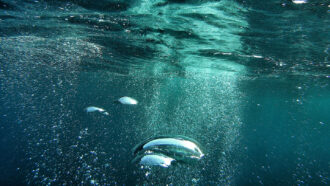 Environment
EnvironmentBubbles could help remove trash from rivers
One young engineer devised a way to make bubbles sweep away the trash floating down a creek, like the one in her backyard.
By Anna Gibbs -
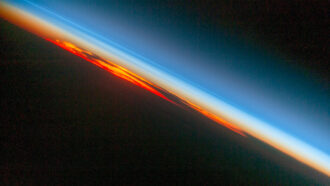 Earth
EarthScientists Say: Atmosphere
An atmosphere is an envelope of gas around a planet, dwarf planet or moon.
-
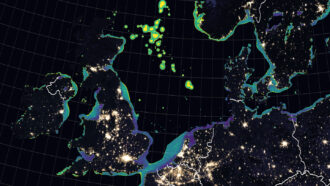 Oceans
OceansNight lights make even the seas bright
Light from coastal cities and offshore development may shine deep enough to disrupt tiny critters living dozens of meters (yards) below the surface.
-
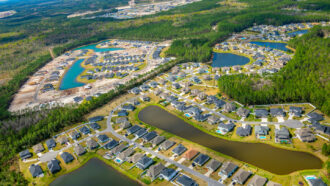 Environment
EnvironmentPonds made to control floods can spew climate-warming gases, study finds
Younger stormwater ponds can release more carbon in gases than they absorb, a study finds. That could aggravate global warming.
-
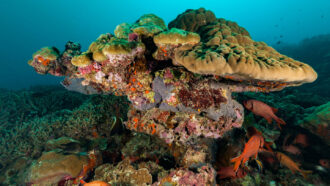 Environment
EnvironmentAnalyze This: Corals stash microplastics in their skeletons
Scientists have wondered where the ocean’s microplastic pollution ends up. Corals may trap about 1 percent of particles in tropical waters each year.
-
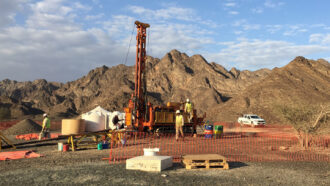 Earth
EarthA bold plan to save the planet turns carbon dioxide into stone
Scientists hope that capturing carbon dioxide this way will limit both further warming of our planet and an escalation of extreme weather events.
By Douglas Fox -
 Environment
EnvironmentWe all unknowingly eat plastic, which may host toxic pollutants
In the environment, plastics attract all types of toxic chemicals. If ingested, new data show, chemicals on those plastic bits may harm the gut.
-
 Climate
ClimateUN report calls for two-pronged approach to slow climate impacts
The latest IPCC climate change report underscores an urgent need for action to avoid the worst consequences of global warming.
By Nikk Ogasa -
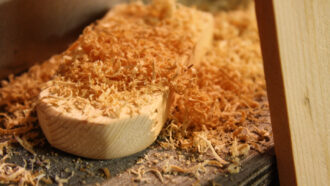 Materials Science
Materials ScienceA disinfectant made from sawdust knocks out deadly microbes
It’s made by pressure-cooking sawdust and water, is cheap and easy to make — and could lead to greener cleaning products than chemicals used today.
-
 Earth
EarthThe Alps’ Matterhorn shows how much even big mountains sway
Such mountain sway data can help planners map high-risk zones for peaks, bridges or any large structures.
By Peg Lopata